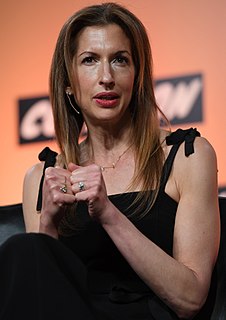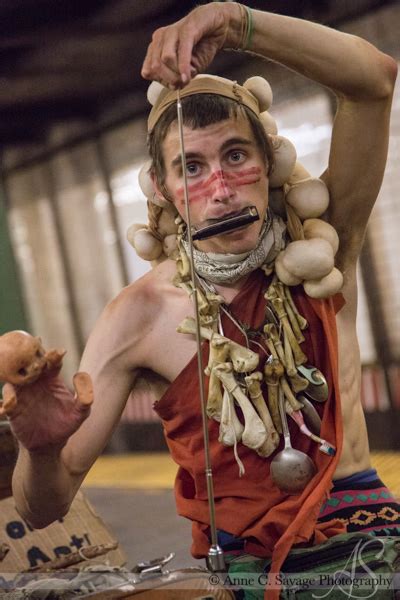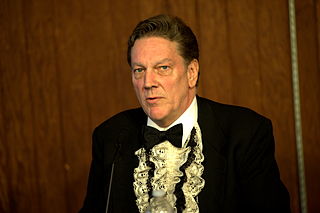A Quote by Anne Frank
I can't imagine how anyone can say: "I'm weak," and then remain so. After all, if you know it, why not fight against it, why not try to train your character? The answer was: "Because it's so much easier not to!
Related Quotes
I should say, the one thing you run into is, if you're trying to raise a round you have to decide, well, how much money are you trying to raise? And then you have to justify that to your investors, because they want to know why you [are] raising that much? Why aren't you raising either twice as much or half as much?
I have been asked so many times why I live a green life, why water conservation, why getting wells in places, why work with water organizations, why conserve water at home with double-flush toilets, why I tell my daughters, "Turn off the tap" so much. Sometimes I want to say, "I wish I knew the answer." My answer really is: I don't understand why everyone doesn't feel this way.
As he was about to leave, she said, "Murtagh." He paused and turned to regard her. She hesitated for a moment, then mustered her courage and said, "Why?" She though he understood her meaning: Why her? Why save her, and now why try to rescue her? She had guessed at the answer, but she wanted to hear him say it. He stared at her for the longest while, and then, in a low, hard voice, he said, "You know why.
Even then, I didn't quite know what to make of it [captain Kirk death]. I was mystified by why I was doing it, why I was so driven to do it, and why it was affecting me like it was. I still don't know what it means. It's a strange singular experience. I don't even know anyone to talk to about it because I don't know anyone who's had that experience.
This is not just a simple story of "money can't buy happiness." Or maybe that's just what it is. And if it is, why shouldn't it be? Because if this is something we are already supposed to know, then why don't we know it? Why do we chase and scrabble and fight for things to flaunt, why? Why do we reach for power over other people, and through the thin superiority of our possessions, believe we have it? Why do we let money make people bigger, and allow those without it to be made smaller? How did we lose the truth in the frantic, tribal drumbeat of more, more, more?
Why should we... constantly worry ourselves... as to what should be done and how, and what should not be done and how not? We know that the train carries all loads, so after getting on it why should we carry our small luggage on our head to our discomfort, instead of putting it down in the train and feeling at ease?
And nothing inspires as much shame as being a parent. Children confront us with our paradoxes and hypocrisies, and we are exposed. You need to find an answer for every why — Why do we do this? Why don’t we do that? — and often there isn’t a good one. So you say, simply, because. Or you tell a story that you know isn’t true. And whether or not your face reddens, you blush. The shame of parenthood — which is a good shame — is that we want our children to be more whole than we are, to have satisfactory answers.
[Do you know] how it feels to be a clownish character? It's always complicated to imagine conveying yourself outside of your body. Inside myself I feel like this rich, complicated thing, and then I see representations of myself, especially in the media - and I think this is why it's troubling for me, because I feel so caricatured and flattened.
You've got to give kids really beautiful children's books in order to turn them into revolutionaries. Because if they see these beautiful things when they're young, when they grow up they'll see the real world and say, 'Why is the world so ugly?! I remember when the world was beautiful.' And then they'll fight, and they'll have a revolution. They'll fight against all of our corruption in the world, they'll fight to try to make the world more beautiful. That's the job of a good children's book illustrator.
Surely it is an odd way to spend your life - sitting alone in a room with a pen in your hand, hour after hour, day after day, year after year, struggling to put words on pieces of paper in order to give birth to what does not exist - except in your head. Why on earth would anyone want to do such a thing? The only answer I have ever been able to come up with is: because you have to, because you have no choice.






































